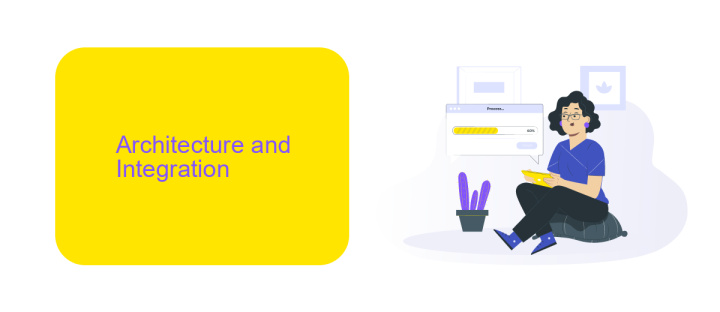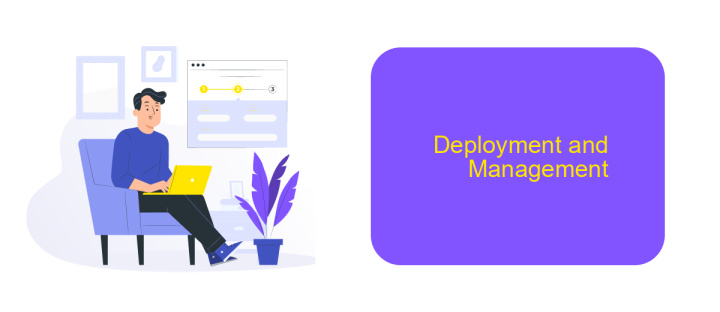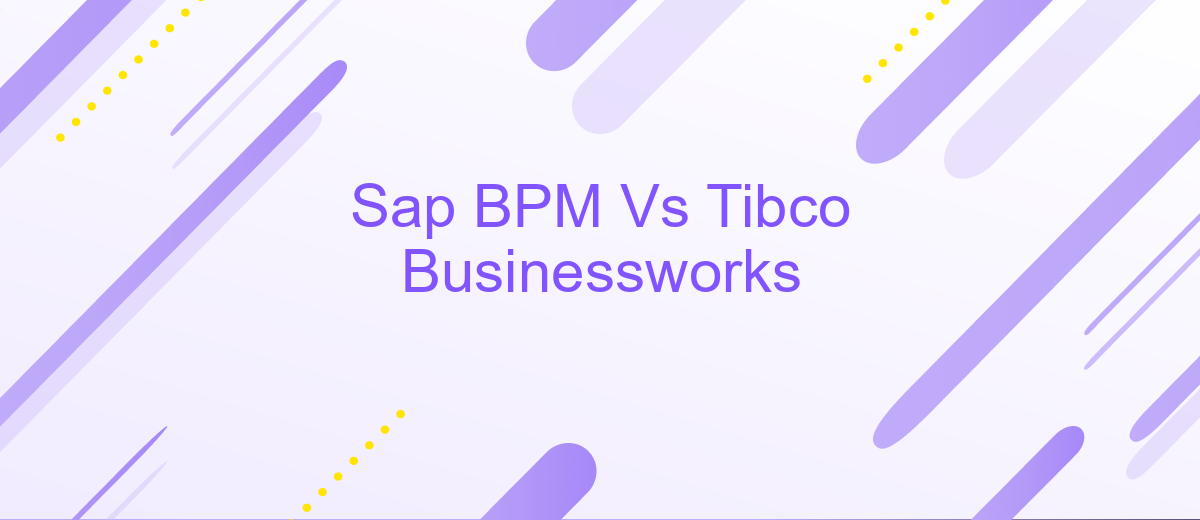Sap BPM Vs Tibco Businessworks
In the ever-evolving landscape of business process management, selecting the right tool is crucial for operational efficiency. This article delves into a comparative analysis of two leading BPM solutions: SAP BPM and TIBCO BusinessWorks. By examining their features, capabilities, and performance, we aim to provide insights that will help organizations make informed decisions tailored to their specific needs.
Overview
SAP BPM and Tibco BusinessWorks are two prominent platforms designed to streamline and automate business processes. Both tools offer robust features for integrating various systems and applications, making them essential for businesses aiming to enhance operational efficiency and agility.
- SAP BPM: Focuses on business process management with strong integration capabilities within the SAP ecosystem.
- Tibco BusinessWorks: Specializes in comprehensive integration solutions, supporting a wide range of protocols and technologies.
While SAP BPM is ideal for organizations heavily invested in SAP solutions, Tibco BusinessWorks excels in heterogeneous environments requiring versatile integration options. For businesses seeking to simplify integrations further, services like ApiX-Drive can be invaluable. ApiX-Drive offers a user-friendly platform to automate and manage integrations, ensuring seamless data flow between disparate systems.
Architecture and Integration

SAP BPM and Tibco BusinessWorks both offer robust architectures designed to streamline business processes and facilitate seamless integration. SAP BPM utilizes a service-oriented architecture (SOA) that allows for flexible and scalable process management. This architecture supports various integration patterns and technologies, enabling businesses to connect disparate systems efficiently. Tibco BusinessWorks, on the other hand, employs an event-driven architecture that excels in real-time data processing and integration. Its microservices-based approach ensures high availability and scalability, making it suitable for complex enterprise environments.
Integration capabilities are a critical aspect of both platforms. SAP BPM provides comprehensive tools for integrating with SAP and non-SAP systems, ensuring smooth data flow across the enterprise. Tibco BusinessWorks offers extensive support for various protocols and APIs, facilitating easy connectivity with a wide range of applications and services. Additionally, services like ApiX-Drive can be leveraged to enhance integration efforts further. ApiX-Drive simplifies the process of connecting different applications and automating data transfer, making it a valuable addition to any integration strategy. Both platforms, with their unique architectures and integration features, offer powerful solutions for modern business needs.
Functionality and Features

When comparing SAP BPM and TIBCO BusinessWorks, it's essential to understand the functionality and features each platform offers. Both are robust tools designed to streamline business processes and enhance operational efficiency.
- Integration Capabilities: SAP BPM provides seamless integration with other SAP modules, while TIBCO BusinessWorks excels in integrating various third-party applications and services.
- Process Modeling: SAP BPM offers intuitive process modeling with BPMN 2.0 compliance, whereas TIBCO BusinessWorks provides a graphical drag-and-drop interface for designing complex workflows.
- Scalability: TIBCO BusinessWorks is known for its high scalability, making it suitable for large-scale enterprise environments. SAP BPM also supports scalability but is more tailored to SAP-centric ecosystems.
- Monitoring and Analytics: Both platforms offer robust monitoring and analytics tools, but TIBCO BusinessWorks includes more advanced real-time analytics features.
- Integration Services: For additional integration needs, services like ApiX-Drive can be utilized to automate and streamline data exchange between various applications without extensive coding.
In conclusion, while both SAP BPM and TIBCO BusinessWorks offer comprehensive functionality for business process management, the choice between them depends on specific organizational needs, existing infrastructure, and integration requirements.
Deployment and Management

When it comes to deployment and management, both SAP BPM and Tibco BusinessWorks offer robust solutions, but they differ in their approaches. SAP BPM integrates seamlessly with other SAP products, providing a unified environment for business process management. This integration simplifies deployment but may require a steep learning curve for those unfamiliar with SAP's ecosystem.
On the other hand, Tibco BusinessWorks is known for its flexibility and ease of use. It supports a wide range of deployment options, from on-premises to cloud-based solutions, making it a versatile choice for various business needs. Its intuitive interface and extensive library of connectors make it easier to manage and deploy complex workflows.
- SAP BPM: Best for SAP-centric environments, integrated with other SAP tools.
- Tibco BusinessWorks: Flexible deployment options, user-friendly interface.
- ApiX-Drive: Facilitates integration and automation between various services.
For businesses looking to streamline their deployment and management processes, integrating a service like ApiX-Drive can be highly beneficial. ApiX-Drive allows for seamless automation and integration between multiple platforms, enhancing the capabilities of both SAP BPM and Tibco BusinessWorks. This can significantly reduce the time and effort required for deployment and ongoing management.
Pricing and Support
When comparing SAP BPM and Tibco BusinessWorks, pricing is a crucial factor to consider. SAP BPM typically offers a subscription-based pricing model, which can be tailored to the specific needs and scale of your organization. This flexibility allows businesses to manage costs effectively as they grow. On the other hand, Tibco BusinessWorks generally follows a perpetual licensing model, which might require a higher upfront investment but can be more cost-effective in the long run for large enterprises.
Support is another key aspect where both platforms excel. SAP BPM provides comprehensive support packages, including 24/7 technical assistance, extensive documentation, and a vibrant community forum. Tibco BusinessWorks also offers robust support options, featuring dedicated customer service, detailed guides, and an active user community. For those looking to streamline integrations without extensive coding, services like ApiX-Drive can be a valuable addition. ApiX-Drive simplifies the integration process, making it easier to connect various applications and automate workflows, thereby enhancing the overall efficiency of both SAP BPM and Tibco BusinessWorks.


FAQ
What are the primary differences between SAP BPM and Tibco BusinessWorks?
Which platform is more suitable for a company already heavily invested in SAP products?
Can Tibco BusinessWorks integrate with non-SAP systems effectively?
What are some common use cases for SAP BPM?
Are there any third-party services that can assist with the implementation of these platforms?
Strive to take your business to the next level, achieve your goals faster and more efficiently? Apix-Drive is your reliable assistant for these tasks. An online service and application connector will help you automate key business processes and get rid of the routine. You and your employees will free up time for important core tasks. Try Apix-Drive features for free to see the effectiveness of the online connector for yourself.

